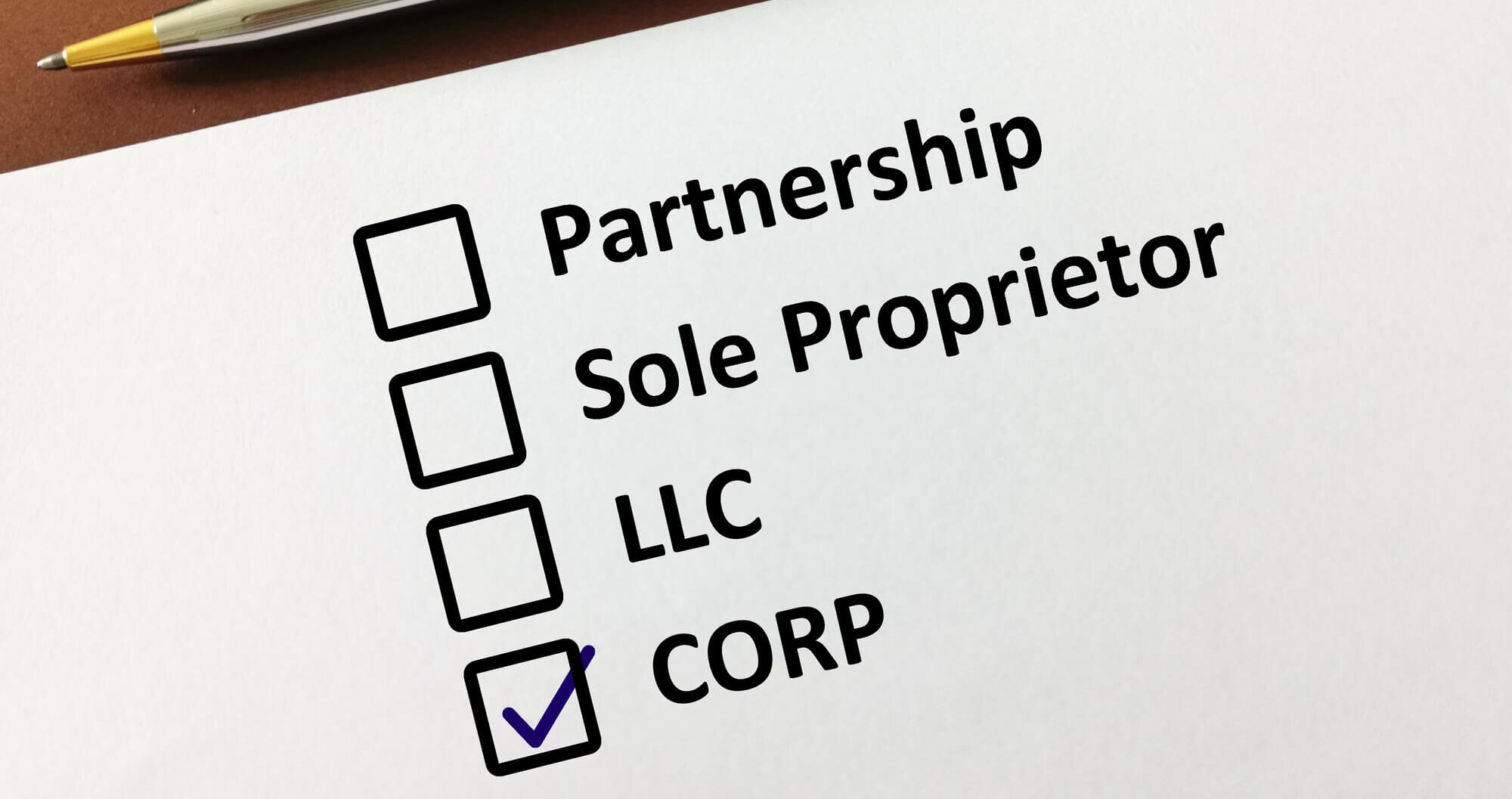- December 12, 2024
- Financial Synergies Wealth Advisors

Top 11 Tax Reduction Strategies for High Earners
Key Highlights
- Higher income often means a heavier tax burden. Strategic planning is key to minimizing your tax liability and maximizing your after-tax income.
- Retirement contributions, HSAs, and itemized deductions can significantly reduce your taxable income.
- Explore income-shifting strategies, such as establishing trusts or utilizing specialized legal structures for your business, to potentially lower your overall tax rate.
- Stay informed about IRS audit triggers for high earners. Maintaining meticulous records and seeking guidance from a tax professional can help you avoid potential issues.
- Be aware of state tax implications. Residency, income sources, and available exemptions vary, requiring careful consideration for multi-state earners.
Introduction

Achieving financial success usually means earning more money. But it also means you might have to pay a higher federal tax rate. The tax code can seem complicated, but planning your taxes is very important for high earners. By knowing how to reduce your taxable income, you can keep more of what you earn. This also ensures you follow tax laws. This blog post will look at prudent strategies to lower your tax burden and improve your financial well-being.
11 Effective Tax Reduction Strategies for High Earners
As a high-income earner, you still have many options to reduce your taxes. Below we’ll discuss some of the most effective tax reduction strategies for high earners:
1. Maximize Retirement Account Contributions
One great way to lower your taxable income is by putting more money into retirement accounts. Both Traditional IRAs and 401(k)s let you contribute money before taxes. This means you can lower your taxable income for the current year by the amount you put in.
Roth IRAs don’t give you the same immediate tax deduction, but they let you take out money tax-free in retirement. This is a big plus as your income increases over time. Picking between a Traditional and Roth IRA depends on your current tax bracket and what you think it will be when you retire.
If you are 50 or older, think about making “catch-up” contributions. This can help you save more for retirement and lower your tax burden. Putting the maximum amount into retirement accounts not only helps your future retirement nest egg but also gives you good tax benefits now.
For more information on retirement account eligibility and contribution limits, click here.
2. Maximize Individual Deductions
When you do your taxes, you can choose between the standard deduction or itemizing your deductions. If you earn a lot, itemizing may lower your taxable income more than the standard deduction.
Itemized deductions include different costs, like medical expenses that go over a certain amount of your gross income. They also include local taxes up to a limit, mortgage interest, and charitable contributions.
Look closely at your eligible expenses to see if itemizing will lower your tax bill more than just taking the standard deduction. Be sure not to miss any possible deductions. Keeping good records all year makes it easier to get the most from your eligible expenses.
For more information on maximizing individual deductions, click here.
3. Income Deferral or Acceleration Strategies
Managing when you receive your income can help you pay less in taxes. Income deferral means you delay receiving income to a later tax year. This can be a good move if you think you will be in a lower tax bracket later.
People often use this strategy for bonuses, stock options, or retirement plan payouts. On the other hand, income acceleration means getting income sooner than usual. This can be helpful if you expect to be in a higher tax bracket next year.
It’s important to look carefully at your current and expected income. This will help you decide the best time to recognize income and reduce your tax burden.
4. Explore Deferred Compensation Options
Deferred compensation plans are usually for high earners. They let you delay getting some of your income until retirement. This helps reduce your current taxable income. It can also move that income to a year when you may be in a lower tax bracket.
These plans can be complicated but are helpful for long-term tax planning. They are especially useful if you expect your income to change a lot in the future. It’s important to know the details of the plan, like vesting schedules and possible risks.
Talk to a financial advisor or tax expert. They can help you determine if a deferred compensation plan works for your financial goals and risk level.
5. Leverage Health Savings Accounts (HSAs)
By leveraging Health Savings Accounts (HSAs), high-income individuals can effectively reduce their tax burden. HSAs offer tax advantages by allowing contributions to grow tax-free and withdrawals for qualified medical expenses are tax-free as well. This strategy not only provides a tax-efficient way to save for healthcare costs but also presents an opportunity for additional retirement savings.
Maximizing HSA contributions can help individuals in higher tax brackets optimize their tax situation by lowering taxable income and potentially reducing their federal tax liability. Furthermore, careful planning around HSA contributions can lead to significant tax savings both in the current year and for retirement planning. Leveraging HSAs can be a valuable tool in a high earner’s tax reduction arsenal.
6. Bundle Your 529 Plan Contributions
Saving for education costs, especially for people with high incomes, needs a smart plan. 529 plans are a great option to save for future education costs while getting good tax benefits. You can’t deduct your contributions from federal taxes, but your money can grow without being taxed. Withdrawals used for qualified education expenses are also tax-free.
You can “front-load” 529 plans. This means you can put in up to five times the annual gift tax limit for each beneficiary. This helps your savings grow without taxes. Some states even give state income tax deductions or credits for contributions, which adds to the tax advantages.
In short, 529 plans offer a flexible and tax-efficient way to save for future education costs. They are a good choice for high earners who want to save more and reduce their tax burden.
7. Consider Investing in Tax-Exempt Municipal Bonds
For high earners looking for good investment options that help reduce taxes, municipal bonds can be a great choice. The interest income from these bonds is usually exempt from federal income tax. If you buy bonds from your own state, the interest income may also be free from state and local taxes.
While municipal bonds often have lower interest rates than taxable bonds, the tax advantages can make up for the smaller returns. This is especially true for people in high tax brackets.
It’s important to do your research and pick the right municipal bonds or bond fund. Each bond’s creditworthiness and risks can change based on who issues them. Talking to a financial advisor can help you choose wisely, based on your investment goals and how much risk you’re willing to take.
8. Optimize Stock Portfolio for Tax Efficiency
Managing your stock portfolio with taxes in mind can save you a lot of money. When you hold onto assets for more than a year (long-term capital gain), the profits you make are taxed at a lower rate than profits from assets sold sooner (short-term capital gain) or from regular income.
So, think about keeping your investments for the long-term to increase your earnings after tax. You can also use strategies like tax-loss harvesting. This means you sell investments that are losing value to reduce the taxes on your capital gains.
Keep in mind that a good portfolio not only focuses on growth but also on tax minimization. By making your portfolio tax-efficient, you can keep more of your earnings and improve your investing results.
9. Charitable Contributions Through Donor-Advised Funds
Charitable giving supports important causes and gives tax benefits, especially for high earners. Donor-advised funds (DAFs) are a smart and flexible way to manage your charitable contributions.
When you start a DAF, you can make a big donation that you can deduct from your taxes this year. Then, you can give money to different charities over time. This is great if you have a year with a lot of income or if you think you will be in a lower tax bracket later on.
DAFs make charitable giving easier. They give you one place to handle your donations and make the most of your tax benefits. This makes DAFs a helpful tool for high earners who want to give back.
10. Strategic Tax-Loss Harvesting
Tax-loss harvesting helps you save on taxes by reducing your capital gains. This means you sell investments that have lost value. By doing this, you can use those losses on your taxes.
These losses can lower the capital gains you owe for the year. This strategy helps you manage your investments better and take advantage of losses while following tax rules.
Keep in mind things like wash-sale rules and how this might affect your portfolio in the long run. It can be a good idea to talk to a financial advisor. They can help you make sure your plan fits your investment goals and tax situation.
11. Roth IRA Conversions
Converting money from a traditional IRA to a Roth IRA can be extremely effective, if done prudently. This is especially true if you think you will be in a higher tax bracket when you retire. With a Roth IRA, you pay taxes on your contributions now, but you can take out money tax-free during retirement.
If you convert in a year when your income is lower, or if you’re in a lower tax bracket, you may pay fewer taxes on this conversion. This helps you get the most tax benefits from the Roth IRA in the long run.
However, you should carefully look at your situation first. This includes checking your current income and what you expect it to be in retirement. Talking to a financial advisor or tax expert can help you make a good choice based on your financial needs.
Understanding the Basics of High Earner Taxation

High earners usually deal with a more complicated tax situation because of how much money they make and the investments they might have. It is important to understand how taxes work, including tax brackets and different types of income, for better tax planning.
Getting to know the tax laws that affect high earners, like rules about capital gains, deductions, and alternative minimum tax, helps you make smart financial choices. Keeping up with changes in tax laws is key. It helps you stay compliant and allows you to adjust your financial plan ahead of time.
Federal Income Tax Brackets for High Earners
The U.S. federal income tax system works on a progressive scale. This means that your tax rate goes up as your taxable income goes up. People who earn a lot usually end up in higher tax brackets. This means they pay more of their income in taxes.
To figure out how much tax you owe, you need to know the tax bracket limits for your filing status, like being single or married filing jointly. It is key to remember that tax brackets only apply to income within certain ranges. For example, if you are single and your taxable income goes over a certain limit, only the extra amount you earn is taxed at the higher rate.
It is good to stay updated on changes to tax brackets. These changes can happen because of new laws or inflation adjustments. Knowing this helps you plan for your taxes better. It allows you to adapt your financial strategy and lessen the effect of higher taxes.
For the 2024 federal tax brackets, click here.
The Role of Capital Gains in Tax Planning
Capital gains are the profits you make when you sell things like stocks, bonds, or real estate. These gains are very important when it comes to tax planning, especially for high earners who have large investments.
The tax rate on capital gains is different from regular income tax rates. It also varies based on how long you hold the asset. If you hold an asset for more than a year, you qualify for long-term capital gains, which are taxed at lower rates. This makes long-term investing a smart choice for reducing tax costs.
To minimize your overall tax bill, it’s crucial to understand the details of capital gains taxes, such as exemptions, deductions, and strategies like tax-loss harvesting. Including these capital gains issues in your investment and tax planning is key for maximizing your returns after taxes.
For more detail on capital gains tax rates, click here.
Advanced Tax Reduction Strategies for High Income Earners

High earners can gain a lot from looking into advanced tax planning. This goes further than just standard deductions and credits. These strategies often use complicated financial tools or legal setups. Their goal is to reduce tax payments while helping to keep wealth safe.
It is very important to talk with tax experts and financial advisors who specialize in serving wealthy clients. They can help you understand these complex methods. Getting advice that fits your unique situation and goals is key. This helps reduce risks and ensures you are following the ever- changing tax laws.
Income Shifting Strategies for Business Owners
Income shifting is a strong tax strategy for business owners. It can help them lower their total tax bill. This process involves moving income from people who are taxed more to those who are taxed less, like family members.
One way to do this is by setting up trusts, hiring family members, or using certain legal structures for your business. It is very important to follow IRS rules and not just do these actions to avoid taxes.
Getting help from tax experts who know about income-shifting strategies is a smart choice. They can help you stay within tax laws while making this approach work best for your business and financial goals.
The Benefits of Establishing a Private Foundation
For high earners who want to make a bigger difference with their charitable giving while also getting tax benefits, starting a private foundation can be a good option.
A private foundation is a non-profit organization that is usually funded by a person, family, or company. This type of foundation gives you significant control over how you want to give to charities. Contributions you make to a private foundation can be tax-deductible, which may lower your taxable income significantly.
Additionally, a private foundation allows the money inside it to grow without being taxed. This can help you support charitable causes more effectively over time. However, managing a private foundation can be complicated due to various rules and requirements. So, it is important to get expert help before you decide to start and run a foundation.
Legal Structures and Their Tax Implications

If you’re a high-income business owner, choosing the best legal setup for your business requires careful due diligence, analyzing how taxes will affect each option. Sole proprietorships, partnerships, LLCs, S corporations, and C corporations each have their own tax advantages and disadvantages.
You need to think about factors like protection from liability, how much ongoing admin work you’ll have, and how much tax flexibility you want. These things are very important when picking the right structure for your business goals and finances. Talking to legal and tax experts can help you make smart choices that fit your needs.
S Corporation vs. LLC: Tax Perspective
Understanding the tax effects of choosing between an S corporation and a Limited Liability Company (LLC) is very important. It helps you manage your tax costs better. LLCs provide flexibility. They let owners pick how they want their business income taxed. This could be as a sole proprietorship, partnership, S corporation, or C corporation.
S corporations have a different tax setup. Here, the business income goes straight to the owners’ personal tax returns. This means they avoid being taxed on profits twice. However, S corporations have stricter rules and limits on who can own them compared to LLCs.
It’s important to think about the good and bad sides of each business structure. Look at things like self-employment taxes, possible deductions, and the complexity of running the business. This will help you find the best choice for your business income and financial goals.
Trusts as a Tool for Estate Planning and Tax Reduction
Utilizing trusts can be a powerful strategy for estate planning and tax reduction for high earners. Charitable Remainder Trusts, for instance, enable you to support a charity while potentially reducing your tax burden. By strategically utilizing trusts, such as charitable remainder trusts or others, you can manage your assets efficiently, potentially reduce your capital gains tax liability, and optimize your tax situation.
Trusts allow for the distribution of assets according to your wishes, providing a structured approach to estate planning that can maximize tax benefits. Working with a financial planner specializing in trusts and estate planning can help tailor these strategies to your specific financial goals and ensure compliance with tax laws. Trusts serve as essential tools for high earners seeking to protect their wealth and minimize tax obligations.
IRS Audit Triggers and How to Avoid Them

High earners have a higher chance of being audited by the IRS. This is because their financial situations can be complex. Errors or missing information in tax filings can also increase audit risk. To lower your chances of an audit, it is important to know what might trigger one. Factors include having a high income, large deductions, or working in specific industries.
To protect yourself, keep careful records. Report your income and expenses accurately. It is also a good idea to get help from tax professionals who know how to deal with high-net-worth individuals, as this illustrates to the IRS that you are following the rules. It also helps you avoid any issues that might lead to an audit.
Red Flags in High Earner Tax Returns
Certain parts of tax returns can be warning signs for the IRS. This can make it more likely that high earners will get audited.
Big deductions that are not backed up, especially if they are much higher than the average or have no proper documentation, can raise concerns. Complicated business setups, accounts in other countries, or using tax shelters can also attract attention.
Moreover, if there are large differences between what a person reports as income and their way of living, this could lead to more checking. Keeping detailed records, making sure all forms are correct, and getting help from a tax expert can lower these red flags. This shows the IRS you are being open, and could lessen the chance of facing an audit.
Documentation and Record-Keeping Best Practices
Proper documentation and careful record-keeping are very important for showing tax deductions. This is especially true for high earners who often have more complicated financial dealings.
Keeping your receipts, invoices, bank statements, and other important documents in order helps prove your claimed expenses. It also ensures your tax filings are correct. Use clear labels and save digital copies so you can find them easily.
Creating a system to track your income and expenses throughout the year helps you avoid rushing when tax time comes. This makes the process easier and cuts down on mistakes. Having a tax professional review your records can also help. They ensure you follow IRS rules and give you peace of mind, especially if you are audited.
State Tax Considerations for High Earners
Navigating state tax laws is very important for high earners. Your residency, where your income comes from, and any exemptions you can use all affect how much you will pay in taxes.
Some states do not charge any income tax, while others tax at different rates based on your income, like the federal system. It is key to know the tax rules in your state. This is especially true if you earn money or own property in more than one state. Knowing these rules helps you stay compliant and can lower your tax burden.
Residency and Its Impact on State Taxes
Establishing residency is very important for figuring out how much state income tax you owe. Different states have their own rules for what makes you a resident. They often look at things like how long you stay in the state, your home, and if you plan to stay.
Usually, if you have a main home in a state for a certain amount of time, that means you live there. This will make your income subject to that state’s tax laws. But even if you live in a state that does not charge income tax, you might still have to pay taxes in other states where you earn money.
It’s really important to understand the details of residency rules. This is especially true for people who travel a lot or own homes in different places. Knowing these rules can help you avoid unexpected tax bills and make sure you follow the tax laws in each state. Talking to tax experts who understand multi-state tax situations can help you understand what you need to do and make the best tax plan for you.
Strategies for Minimizing State Income Tax
High earners can use different ways to lower their state income tax. These methods need careful planning and may involve legal and financial details that fit your situation.
One option is to think about moving to a state with low or no income tax. This can really cut down your tax burden. You should also make the most of the deductions, credits, and exemptions offered by your state to lower your taxable income.
It’s a good idea to talk to tax professionals who know about local taxes. They can help you find all the legal ways to reduce your state income tax and increase your after-tax income.
Conclusion
In conclusion, implementing effective tax reduction strategies for high earners is crucial in optimizing financial health and wealth management. By capitalizing on retirement contributions, individual deductions, and income deferral tactics, individuals can strategically reduce their tax burden. Exploring options such as Health Savings Accounts (HSAs) and deferred compensation plans can further enhance tax efficiency. Careful planning and leveraging tax-advantaged accounts can lead to substantial savings. Ensuring compliance with IRS regulations and staying informed about state tax considerations are integral parts of a comprehensive tax strategy for high-income individuals. By navigating these strategies adeptly, high earners can maximize savings and minimize tax liabilities while achieving long-term financial goals.
Frequently Asked Questions
What Is the Best Way to Reduce Taxable Income?
Lowering your taxable income usually means using several strategies. You can make the most of contributions to retirement plans. Also, use any tax deductions and credits available to you. Additionally, consider tax-advantaged accounts, like HSAs. These are good ways to lower the income that is taxed.
How Can High Earners Benefit from Tax-Loss Harvesting?
Tax-Loss Harvesting helps high earners reduce their capital gains tax. They can do this by selling investments that have lost value. By selling these losing investments, they can lower the gains that are taxed, which means their capital gains tax liability for the year gets smaller.
Are There Limits to Contributions for HSAs and Retirement Accounts?
Yes, both HSAs and retirement accounts have a limit on how much you can put in each year. The IRS sets these limits. They may change each year due to inflation adjustments. Your age and if you have a high-deductible health plan can also affect these limits for HSAs.
How Do Donor-Advised Funds Work for Charitable Contributions?
Donor-advised funds work like special investment accounts for charity. When you give money as a charitable donation to these funds, you can get a tax deduction right away. The money in the fund can grow without any taxes. After some time, you can decide how to share the funds with the charities you care about.
Sources:
https://taxfoundation.org/data/all/federal/2024-tax-brackets/
Concerns or questions about your financial plan or tax situation? Contact Financial Synergies today.
We are a boutique, financial advisory and total wealth management firm with over 35 years helping clients navigate markets and developing custom financial plans. To learn more about our approach to financial planning please reach out to us. One of our seasoned advisors would be happy to help you build a custom financial plan to help ensure you accomplish your financial goals and objectives. Schedule a conversation with us today.
More relevant articles by Financial Synergies:
- 2024 Important Tax Numbers: A Handy Guide
- Equity Compensation Foundations
- SECURE Act 2.0: What You Need to Know
Blog Disclosures
This content, which may contain security-related opinions and/or information, is provided for informational purposes only and should not be relied upon in any manner as professional advice, or an endorsement of any practices, products or services. There can be no guarantees or assurances that the views expressed here will be applicable for any particular facts or circumstances, and should not be relied upon in any manner. You should consult your own financial advisors as to legal, business, tax, and other related matters concerning any investment.
The commentary in this “post” (including any related blogs, videos, and social media) reflects the personal opinions, viewpoints, and analyses of the Financial Synergies Wealth Advisors, Inc. employees providing such comments, and should not be regarded as the views of Financial Synergies Wealth Advisors, Inc. or its respective affiliates or as a description of advisory services provided by Financial Synergies Wealth Advisors, Inc. or performance returns of any Financial Synergies Wealth Advisors, Inc. client.
Any opinions expressed herein do not constitute or imply endorsement, sponsorship, or recommendation by Financial Synergies Wealth Advisors, Inc. or its employees. The views reflected in the commentary are subject to change at any time without notice.
Nothing on this website or Blog constitutes investment or financial planning advice, performance data or any recommendation that any particular security, portfolio of securities, transaction or investment strategy is suitable for any specific person. It also should not be construed as an offer soliciting the purchase or sale of any security mentioned. Nor should it be construed as an offer to provide investment advisory services by Financial Synergies Wealth Advisors, Inc.
Any mention of a particular security and related performance data is not a recommendation to buy or sell that security. Financial Synergies Wealth Advisors, Inc. manages its clients’ accounts using a variety of investment techniques and strategies, which are not necessarily discussed in the commentary. Investments in securities involve the risk of loss. Past performance is no guarantee of future results.
Any charts provided here or on any related Financial Synergies Wealth Advisors, Inc. personnel content outlets are for informational purposes only, and should also not be relied upon when making any investment decision. Any indices referenced for comparison are unmanaged and cannot be invested into directly. As always please remember investing involves risk and possible loss of principal capital; please seek advice from a licensed professional. Any projections, estimates, forecasts, targets, prospects and/or opinions expressed in these materials are subject to change without notice and may differ or be contrary to opinions expressed by others. Information in charts have been obtained from third-party sources and data, and may include those from portfolio securities of funds managed by Financial Synergies Wealth Advisors, Inc. While taken from sources believed to be reliable, Financial Synergies Wealth Advisors, Inc. has not independently verified such information and makes no representations about the enduring accuracy of the information or its appropriateness for a given situation. All content speaks only as of the date indicated.
Financial Synergies Wealth Advisors, Inc. is a registered investment adviser. Advisory services are only offered to clients or prospective clients where Financial Synergies Wealth Advisors, Inc. and its representatives are properly licensed or exempt from licensure. Investments in securities involve the risk of loss. Past performance is no guarantee of future results.




